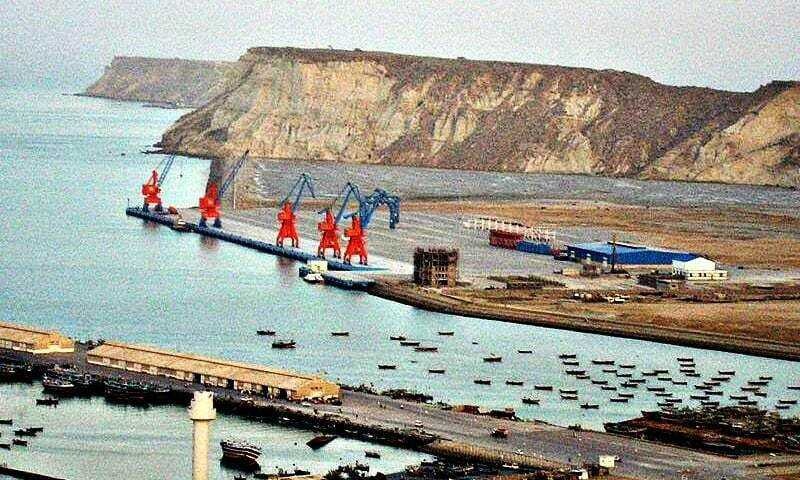In a significant development, the Belt and Road Initiative (BRI) has emerged as a game-changer for Pakistan, catapulting the nation into an era of unparalleled economic transformation. Dr. Gohar Ejaz, Pakistan’s Minister of Commerce and Industry, hailed the BRI’s initial phase, emphasizing its pivotal role in eliminating electricity outages and laying a robust foundation for industrialization. In a meeting with President Ren Shengjun of the Chinese Exim Bank in Beijing, the potential of this ambitious initiative took center stage. This report delves into the remarkable progress fueled by the BRI in Pakistan, highlighting its impact on the power sector, the establishment of Special Economic Zones (SEZs), and the formation of the Pakistan Corporate Consortium (PCC), accompanied by the Exim Bank’s efforts to bolster economic relations.
Electrifying Progress: BRI’s Impact on Pakistan’s Power Sector
Pakistan’s power sector has witnessed a transformative overhaul thanks to the Belt and Road Initiative. Dr. Ejaz underscored the groundbreaking strides made in eradicating electricity outages and fostering surplus electricity generation. This monumental achievement sets the stage for robust industrialization and economic growth in Pakistan. In a meeting with President Ren Shengjun, the surge in electricity production, which soared from 4.82% in August 2023 to a remarkable 5.8% in September, was celebrated. These statistics mark the highest level recorded over the past five years.
Special Economic Zones: Engines of Industrial Growth
The ambitious vision for Pakistan’s industrial sector comes to life with the establishment of Special Economic Zones (SEZs) in major cities such as Karachi, Lahore, Multan, and Faisalabad. These SEZs are poised to become epicenters of industrial growth, equipped with state-of-the-art facilities to propel the nation forward. They not only hold the potential for increased exports but also provide significant opportunities for transit trade agreements. A focal point of interest lies in the Karachi route, which presents a remarkable prospect for industrial development and official trade in RMB with Russia and neighboring countries. This monumental step amplifies Pakistan’s commitment to realizing its economic potential on the world stage.
Fostering Economic Ties: Pakistan Corporate Consortium and Debt Restructuring
A remarkable step towards strengthening economic ties and stimulating private investment is the formation of the Pakistan Corporate Consortium (PCC). Comprising ten prominent business houses, the PCC aims to collaborate with potential Chinese investors for transformative joint ventures. The Minister of Commerce and Industry requested support from the Exim Bank for the relocation of industries to Pakistan. President Ren Shengjun conveyed his vision of Pakistan becoming a pivotal hub for productivity and development, signaling the opportune moment to seize these prospects.
President Ren Shengjun commended the progress of the China-Pakistan Economic Corridor (CPEC), recognizing the infrastructure development’s positive impact on enhancing connectivity and boosting Pakistan’s foreign trade. Furthermore, the Exim Bank’s successful completion of internal processes for debt restructuring is poised to facilitate transactions in RMB and bolster trade relations. The formation of the PCC is hailed as a promising mechanism to drive private investments and elevate economic cooperation to new heights.
In an interactive session held in Beijing, over 200 influential business leaders from China and Pakistan convened to explore the vast potential of CPEC in fortifying economic relations. Key sectors such as infrastructure development, energy, trade, and technology are at the forefront of discussions. The historical ties between the two nations are poised to translate into tangible outcomes, ushering in a future marked by robust economic collaboration.
Ambassador Moinul Haque expressed optimism about an enhanced economic partnership, emphasizing the conversion of strong political bonds into tangible, mutually beneficial achievements. The economic bridge between China and Pakistan continues to thrive, poised for new horizons of growth and prosperity.
The Belt and Road Initiative’s profound impact on Pakistan’s economic landscape is palpable, with transformative changes in the power sector, industrial prospects through SEZs, and the promising Pakistan Corporate Consortium. This collaborative journey is not only revitalizing the nation’s industrial landscape but also fortifying the bonds of economic partnership between China and Pakistan, creating a path to shared prosperity and success.
















